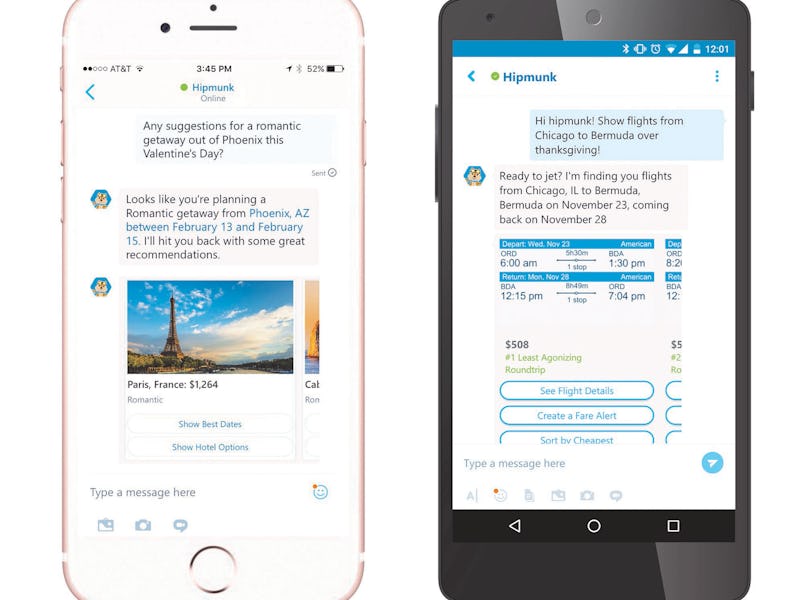Microsoft Wants to Lure People Back to Skype With Chatbots
Remember when Skype was the future of communication?

There was a time when Skype felt like the future of communication. It was free, easy to use, and the best way to message someone on the other side of the world. Then other services debuted and, instead of feeling like the future, Skype came to be seen as just another communications tool waiting to be made obsolete.
Microsoft is trying to change that with chatbots, or conversational computing. The basic concept is the same as every other messaging platform working on chatbots: Instead of doing something themselves, people will have chatbots do it for them.
“The more you use bots, the better they get at anticipating your needs,” the Skype team announced in a blog post about the new bots. “We want bots to become the quickest way to handle simple tasks, like shopping or managing your calendar, and the most effortless way to complete complex tasks, like planning a vacation from scratch.”
Microsoft didn’t have to remind anyone how chat bots work. They’re everywhere, from Facebook’s Messenger service to Slack, and today’s announcement is more about Skype playing catch-up than innovating.
That’s not surprising. Many of Skype’s recent changes, like the decision to move toward a central server-based system instead of peer-to-peer communications, are small fixes that bring it more in line with other services. It’s the digital equivalent to fixing up an old car and trying to convince people it’s just like a newer model.
Microsoft even boasts about Skype’s “hundreds of millions of users.” That’s great! It takes a long time for most services to reach that many people. But it’s not nearly as impressive when one remembers that Facebook offers two messaging apps that have a billion users a piece.
Both of those apps have many of the features that Skype offers, without the additional baggage of people remembering how often calls dropped, bugged out, or made it sound like their participants were robotic versions of themselves. That’s not to cheapen Skype — it was revolutionary when it was released — but the clunky early experience many people had with it have made newer, more polished and stable services more popular.
Microsoft seems to think bringing Skype to parity with these services will be enough to convince people to keep using it and, maybe, give it a try instead of using Messenger or WhatsApp. Maybe it’s right. But right now it looks like Skype went from being the frontrunner in the digital communications revolution to being an also-ran that’s wheezing along on the heels of its younger competitors.